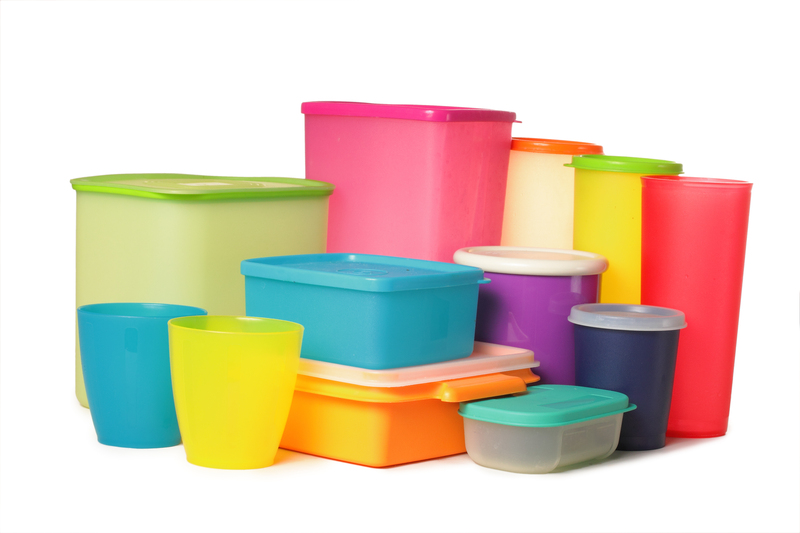Disposing of Bulky Waste Items: Save Cash With These Tips
Dealing with large, unwanted items can be a hassle, but throwing out bulky waste doesn't have to drain your wallet. Whether you're renovating your space, upgrading furniture, or simply decluttering, learning how to efficiently and affordably get rid of large waste items can save you cash and reduce stress. Read on for an in-depth guide to cost-effective bulky waste removal and disposal solutions.
What Qualifies as Bulky Waste?
Bulky waste, also known as large or heavy trash, includes items that do not fit into standard trash bins due to their size or weight. Examples include:
- Furniture (sofas, mattresses, bed frames, wardrobes, tables, desks, chairs)
- Home appliances (refrigerators, ovens, washing machines, dryers, air conditioners)
- Electronics (televisions, computer monitors, exercise equipment)
- Construction debris (old flooring, bathtubs, doors, scrap wood)
- Outdoor items (grills, garden tools, trampolines, lawnmowers, patio sets)
Proper bulky waste collection not only keeps your home orderly, it also helps the environment when recycling or reuse is considered first.

Why Proper Bulky Waste Disposal Matters
Improper disposal of large waste items can lead to fines, neighborhood blight, and environmental harm. Many bulky items contain materials that require special handling, such as e-waste components, refrigerant gases, or treated woods. Keeping these out of landfills when possible is essential for resource conservation and public health.
Tips to Save Cash on Bulky Waste Removal
Below, we've compiled practical, actionable steps for the cheapest ways to dispose of bulky waste. These strategies make the process hassle-free, sustainable, and easy on your budget.
1. Check Your Local Municipality's Bulk Collection Services
Many cities and towns offer free or low-cost curbside bulk trash pickup several times a year. Here's how to take advantage:
- Research collection schedules: Visit your city or waste management website to locate upcoming collection dates.
- Register ahead: Some programs require advance booking. Secure your spot as early as possible.
- Follow guidelines: Follow rules regarding item types, size, and placement to avoid rejection or fines.
- Group items together: If allowed, consolidate multiple large items into a single pick-up for efficiency.
2. Donate, Sell, or Give Away Items
When it comes to large item disposal, your trash could be another person's treasure. Consider these options before dumping goods:
- Donation: Many charities accept usable furniture, appliances, and electronics. Organizations like Goodwill, Salvation Army, and Habitat for Humanity can often pick up items for free.
- Online marketplaces: Post your items on Facebook Marketplace, Craigslist, or Freecycle to sell or give away bulky possessions quickly.
- Community groups: Use neighborhood apps (e.g., Nextdoor) to connect with people interested in taking your items off your hands.
Donating or selling not only saves disposal fees but may also qualify you for tax deductions--check with your accountant!
3. Drop Off at Household Waste Recycling Centers
If your item is not fit for reuse, your local recycling or transfer station may accept it. Here's what to know:
- Locate your nearest facility: Search "bulky waste disposal near me" to find drop-off options.
- Confirm accepted items and fees: Some centers take specific items for free, while others charge a nominal fee depending on weight or type.
- Separate materials: Items such as electronics and metals may be recycled at no cost if separated from general waste.
4. Break Down Items Yourself
Sometimes, large objects can be disassembled into smaller pieces that fit regular trash or recycling bins. (Always verify local regulations first!) For example:
- Remove sofa legs or arms to reduce bulk
- Disassemble wooden furniture into manageable parts
- Take apart bed frames and mattresses
Doing the labor yourself saves on pick-up fees or disposal costs.
5. Collaborate with Neighbors for Group Disposal
Pooling resources with neighbors can make large waste removal cheaper. Options include:
- Renting a shared dumpster for a block clean-up event
- Arranging a communal collection day with your local waste provider
This approach splits costs and may qualify for discounted rates from disposal companies.
6. Hire a Junk Removal Service Only if Necessary
Professional junk haulers offer convenience but may be pricier than DIY methods. To save, consider these tips:
- Request multiple quotes: Compare rates from at least three providers to get the best price.
- Ask about eco-friendly options: Some companies prioritize recycling and may offer lower rates for items destined for donation or reuse.
- Book during off-peak times: Prices may be lower during weekdays or non-peak seasons.
Types of Bulky Waste and How to Dispose of Each Responsibly
Different types of large waste require varying handling methods for optimal savings and environmental benefit:
Furniture and Mattresses
- Donate gently used pieces to shelters or thrift stores
- Use mattress recycling services if your local waste authority supports them
- Check for bulk trash pick-up on scheduled days
- Consider upcycling or repurposing before disposing
Appliances
- Contact manufacturer or retailer--many offer "take back" programs
- Recycle through e-waste programs, especially for refrigerators/freezers (proper refrigerant removal is critical)
- Sell or donate working appliances online or to nonprofits
Electronics
- Utilize e-waste recycling events in your community
- Erase all personal data before recycling computers or phones
- Sell functional electronics or gift to schools/organizations
Yard Waste and Outdoor Structures
- Compost organic material when possible
- Take scrap metal to recycling centers
- Break down large equipment (e.g., trampolines, grills) for easier transport
How to Estimate Costs for Bulky Waste Removal
The price of getting rid of large items varies depending on method, item type, and location. Here are some general cost-saving guidelines:
- Free Bulk Pick-Up: Check your local waste management schedule for designated "large item" days.
- Donation: Most charities do not charge and offer complimentary pick-up for qualified items.
- Drop-Off Fees: Range from $5 - $50 per item, but many centers offer periodic free collection events.
- Junk Removal Companies: Professional services typically charge $75 - $200 for a single item, with discounts for multiple items.
- Dumpster Rental: Costs range from $200 - $500 for a small container; organize with neighbors to split costs.
Tip: Always confirm costs upfront and inquire about price-matching or senior/military discounts where available.
Common Mistakes to Avoid With Large Item Disposal
Saving money--and the environment--means making smart choices. Steer clear of these common pitfalls:
- Abandoning items illegally: Leaving items on the curb without city approval can result in fines.
- Not researching recycling options: Many items banned from landfills can be recycled for free or cheaply.
- Paying for professional removal unnecessarily: Always attempt donation, resale, or municipal options first.
- Improperly packing or preparing items: Some collection programs require wrapping, containing, or labeling large items.

Environmental Benefits of Responsible Bulky Waste Disposal
Eco-friendly bulky waste disposal practices have tangible advantages:
- Reduces landfill overflow
- Conserves resources through recycling and reuse
- Prevents environmental contamination from hazardous materials
- Helps those in need receive donated furniture or appliances
By considering sustainable disposal options first, not only do you save on disposal costs, but you also make a positive impact on your community and planet.
Final Thoughts: Save Money and Stress When Disposing of Bulky Waste
Getting rid of large, unwanted items doesn't have to break the bank or harm the environment. With a little research and creativity, you can dispose of bulky waste items cost-effectively, responsibly, and even help others in the process.
- Investigate free city or special bulky waste collection days
- Choose donation, resale, or giveaways before disposal
- Break down larger items to fit in standard waste streams
- Pool resources for shared disposal solutions
- Use professional removal services as a last resort
Need help now? Search your municipality's waste and recycling website, or try "bulk waste disposal near me" to start saving money while keeping your space clutter-free!
```